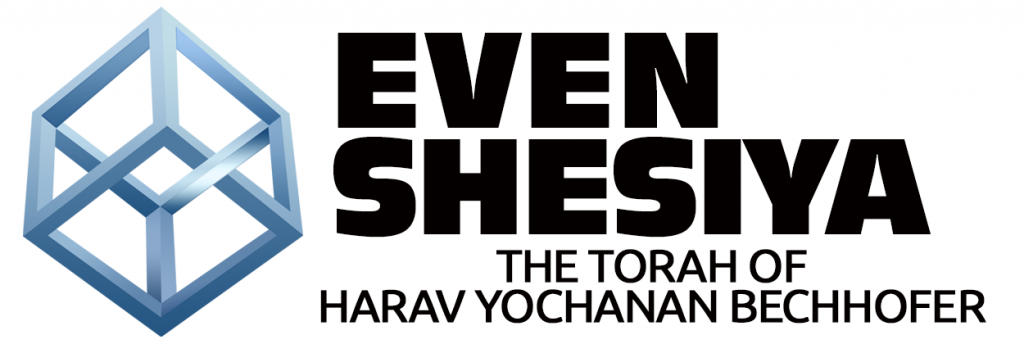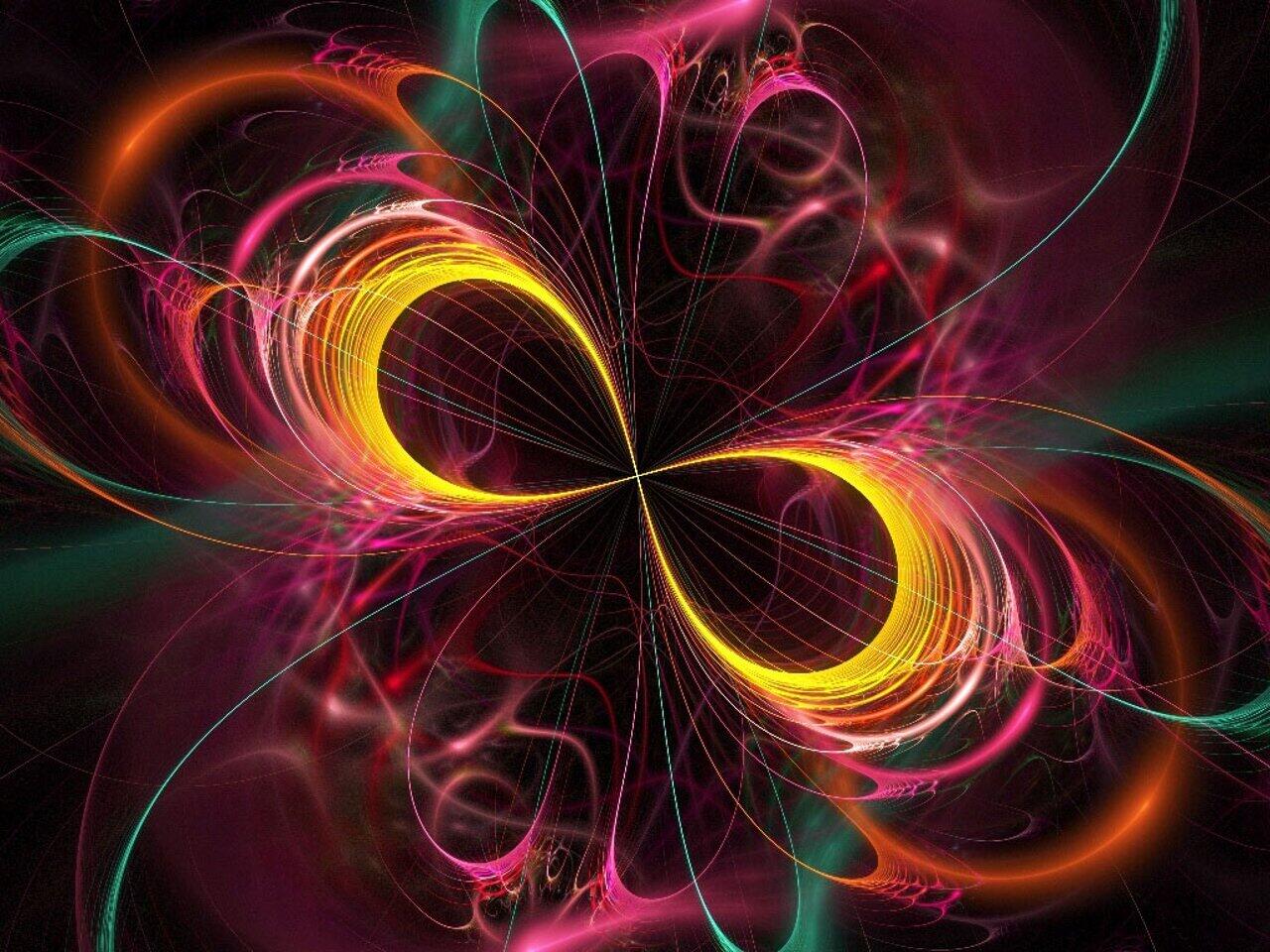Click here to download PDF
Who called?
“And He called to Moshe and Hashem spoke to him from the Ohel Moed…” seemingly it should have read: And Hashem called to Moshe and He spoke to him from Ohel Moed! Hashem should have been mentioned at the beginning of the sentence, as He’s doing the calling. Why is Hashem not mentioned by the calling, and only mentioned by the detailed command that follows later in the very same Pasuk?
Why Now? What’s with the Angels?
On the words, “Vayikra”- And He called to Moshe”, Rashi says: “All the statements, all the sayings, and all the commandments were preceded by a calling, which is an expression of love, an expression that the angels use, as it says “and they call this one to that one” (Yishayahu 6:3) but to the prophets of the Goyim Hashem reveals Himself upon them in an expression of temporary and Tuma (impurity), as it says “Vayakar Hashem”- Hashem ‘happened’ (in a derogatory way) upon Bilaam (Bamidbar 23:4). There are many questions that need to be understood here. Firstly, Rashi says that every time Hashem spoke to Moshe in any way, He always ‘called’ to him first. Why is this lesson being taught to us in the book of Vayikra? If it was always true, it should have been taught to us earlier, when Moshe first prophesied! What is the significance in that the angels use this type of expression amongst themselves?
Paradoxes in Zachor & Amalek
In this special year of the Jewish leap year, Vayikra is also Parshas Zachor. This Mitzvah to remember Amalek so that we should obliterate any memory of him from existence, is paradoxical. If we would not be remembering him year in and year out, he would have been long forgotten! Who talks about Amalek other than us, the Jewish people, who are constantly engaged in remembering his evil deeds? Why is the command to obliterate Amalek expressed as to obliterate the ‘Zecher’ – memory of Amalek? Why couldn’t the Torah just say to kill them out, like it says by the seven nations that we are also commanded to obliterate? There’s a seeming contradiction between what’s written in Parshas Beshalach and what’s written in Parshas Zachor in Parshas Ki – Tetze. In Parshas Beshalach, Hashem says to Moshe: “write this as a “Zikaron” – for eternal remembrance in the book and put it in the ears of Yehoshua for I will obliterate the “Zecher Amalek” from under the sky” (Shemos 17:14). But in Parshas Ki Tetzeh it says: “When Hashem will give you rest from all your enemies around you in the land that Hashem gives you for an inheritance to conquer, you shall obliterate the “Zecher Amalek” from under the sky, do not forget!” (Devarim 25:19). Who obliterates the “Zecher Amalek”, Hashem or us?
The Pasuk says “When Hashem gave you rest from ALL your enemies around you, then you should obliterate “Zecher Amalek”. Amalek is not included in “all your enemies around you” that you have been relieved from. If he’s not amongst the enemies around us, where is he?
Looking out for Number 1
The Jewish people and the Torah are both called “Reishis”– the first as they are the “first thought” which is the “end goal” of Hashem in creation. Bilaam says about Amalek “Reishis Goyim”- he is the first amongst nations (Bamidbar 24:20). This is impossible. There are no two firsts! There’s room for infinite points on a plane but there can only be one center, which is the first that everything else radiates from. Point center is one of a kind and indivisible, because if it would be divisible, it’s not one. This is the secret of the absolute mutually exclusive adversity between Yisroel and Amalek. Amalek doesn’t want to be “just another nation” – they want our place in reality! They hate us so much and cannot suffer our existence because they want to take our position in the cosmos. We leave Amalek no room and that means that they don’t really exist. They’re a false idea and that’s why they are called “Zecher Amalek” –The memory or idea of Amalek! They are not a real nation that has a place on the globe, like all the others. But this weakness also works to their advantage, if people are foolish enough to believe in them. Falsehood (fake news) is a very powerful force when it is believed to be true. It can motivate people to commit the greatest atrocities even to the point of their own self-destruction. Amalek is truly the “first of nations” as he infiltrates them and incites them to the genocide of the Jewish people and all other evils. Case in point, Haman was a Persian. Hitler was an Austrian/German. He is the head of all nations in the sense that he could be the intellectual virus that captures the mind of any nation and incite them to do his bidding of evil in general and to destroy Klal Yisroel in particular. This is what Chazal (Chulin 139b) mean: “where is an allusion to Haman in the Torah? HaMin Haetz – did you eat from the tree?” Hashem obviously knew the truth that Adam had eaten from the “Etz HaDaas” but hashem was sticking it into Adam’s face and saying: “you’ve just put yourself in a place susceptible to doubt by abandoning the knowledge that I created you with. You used to be able to distinguish between truth and falsehood, but you gave yourself a knowledge that sees things in the relativistic terms of “good and bad”. It’s in this mentality that humanity brought upon itself, that the false idea of “Zecher Amalek” can exist, fester, and manipulate.
Moshe vs Amalek
The Gemara asked where is an allusion to Haman in the Torah, as a reaction to the Gemara fist seeking an allusion to Moshe in the Torah. Moshe and Amalek are opposites. This is why Haman was happy when the lots fell on Adar, which is the month that Moshe died (but he was unaware that Moshe was also born then). The Midrash Rabba on the word “Bereishis” says that the world was created in the merit of Moshe, who is also called “Reishis” as the Pasuk says “Vayar Reishis Lo” (Devarim 33:21; referring to the portion of Gad in “Ever haYarden” where Moshe is buried). This is not a contradiction to the fact that “Reishis” means Torah and the Jewish people. These concepts are actually different expressions of the same “First”. As we know, “the Torah and the Jewish people are one” (Zohar Acharei Mos 73a). The Torah is like the soul, and the Jewish people are the body for that soul, and Moshe is the concept that belongs to both categories because it is through him that the Torah merged with the Jewish people. On the one hand it’s called “Moshe’s Torah” (Malachi 3:22) and on the other hand, Chazal tell us, “Moshe is equal to the whole of the Jewish people” (see Rashi Shemos 18:1). Moshe reveals the unity that on the conceptual level, the Jewish people and the Torah are rooted in “Bereishis” – that first thought/end goal that Hashem has for reality.
The Cosmic Alignment
One of the thirteen things Chazal changed for King Ptolemy when translating the Torah for him was “Bereshis Bara Elokim” to Elokim bara Bereishis. They were afraid that Ptolemy would think that Bereishis is some type of deity that created Elokim. The question remains, why did the Torah write “Bereishis Bara Elokim”? What would have been wrong if the Torah would have said the other way around, as was translated for Ptolemy? The seforim explain that all the Divine Names whether Elokim or any other Divine name that there are, are all names of different relationships that Hashem has with the world when administering it. The Names vary in accordance with the different modes of conduct that Hashem chooses to employ, whether mercy or judgment etc. Hashem himself has no name. He took on those names for the purpose of administering the world in all the different ways it needs to be administered. Why did He take this on? “Bereishis” – for the sake of the Jewish people, who are a manifestation of the Torah, that’s what “created Elokim” that’s what created the need for Hashem to project Divine names, to administer the world. As is well known, the Mishkan is a mini universe. That’s why we can learn from the Mishkan the 39 melachos that we must rest from on Shabbos because Hashem rested from the creation of heaven and earth. Sefer Vayikra ushers in a new era where the Mishkan has already been constructed. It’s called that the world had attained a form of reconstruction, realignment, and unity. It’s as if the world is starting fresh “and He called to Moshe….” is like “Bereishis”, the first thing Hashem calls for, the center of His plan that He loves, is Moshe who represents all that’s called “Reishis” and for that sake, “vayedaber Hashem elav” – Hashem will take on the Divine names and issue commands and govern the Jewish people and the whole world. This state of cosmic unity and alignment is called “Vayikra” – connection and love, with no interference. The angels use that verb when addressing each other because angels are totally single-minded to do their mission and can not possibly do anything else, only the mission that Hashem sends them to do. They are in perfect alignment with the Divine Will and that was the state of Moshe and the Jewish people at the time that the Mishkan was erected. Although it was always true that Hashem always called to Moshe before talking to him, here was the place to teach us that because here was the place where that reality is rightfully earned and revealed. In other words, Hashem always called to Moshe even prior to this point, but it was “on credit” for the sake of what will be, here that objective was achieved!
Vayikra vs Vayakar
By Moshe it’s “Vayikra” – connection – in that perfectly aligned reality where there is a ‘closed circuit of truth’ there is no place for Amalek. By Amalek it says “Asher Karcha” (Devarim 25:18) which Rashi says is from the same root as “vayikar” and it mean all the same things as is meant by Bilaam and more! It means Tumah (and worse, see Rashi there), it means happenstance (coincidence), and it means that they “cooled us off” from our enthusiasm and in the eyes in the nations. The common denominator is disconnection! In a coincidence, you are saying that there is no connection between the flow of events. In so far as Tumah, I heard from my Rebbe Maran HaGaon HaRav Moshe Shapira ZT”L, it comes from the root “Tam” which in Hebrew means to be sealed off (“Atum”; “Tumtum”; “Tamun”…etc) and that’s why the outcomes of being Tamei is to be separated whether from Kodshim, whether from Har Habayis, whether from the spouse, whether to sit alone. And to be “cold” is to be “out of touch” with our greatness. Amalek looks for any chink in our armor, the wedge in reality which can start with any ‘disconnect’ which includes any confusion or doubt, that’s where he penetrates, and he’ll do anything to widen that rift.
Get Connected!
The word “Zachor” – to remember doesn’t just mean to have a recall. It means to be in touch with reality – to be totally connected. The Pasuk (Yirmiyahu 31:19) says “A dear son is Ephraim, the child I play with, for when I speak of him, “zachor ezkerenu od”- I will remember him even more, therefore I yearn for him and I will have mercy on him…”. “Zachor” is not data recall, it is to get connected. Moshe hands raised in prayer by the battle with Amalek reminded us to stay connected with the reality that everything is from Hashem (Rosh Hashana 29a) and even though Yehoshua and the nation are fighting by the sword they must “not forget” Hashem as the source of all power. In a perfect parallel to this, following the war Moshe was commanded to “write it as a “Zikaron” in the book” which is Torah Shebichsav, and “put it in the ears of Yehoshua”, which is Torah She Be’al peh. Just like we understand that the Torah she bichsav in books is Hashem’s word, so also the Torah She Beal Peh that’s in people – it is all one Torah. To lose sight of that unity would be giving room to Amalek to squeeze in – and that’s the secret behind the fact that the Jews reaccepted the Oral law in the days of Purim supplementing for the fact that they had to be forced to accept it by Sinai!
Mind Wars
Regarding the question that we raised, does Hashem obliterate Amalek or do we do it? The Medrash Tanchuma points out that the pasuk that says we obliterate Amalek is in Parshas Zachor together with the command to remember Amalek. The Medrash says: “you will remember him below and I (Hashem) will erase him from above”. Amalek is scattered around the globe like a virus, a fake idea being repeated and promulgated and only Hashem could obliterate him at this time, especially as we are ourselves in exile. But what we can do is “ZACHOR” to be on the guard, to be REAL and see him for who he is! An unconfronted falsehood infiltrates healthy minds and hearts and corrupts them. We have to “remember Amalek” in order to blot out any memory of him – because if we forget about him, if we are lax, he will infiltrate the minds of the nations of the world and even our own connection to Hashem. By “Zachor” and being fully REAL and connected to the reality of how dangerous he is we are protecting ourselves and all that are under our sphere of influence. This vigilance doesn’t just ‘protect’ but also gets a response from Hashem to actively eliminate Amalek – speedily in our days!










